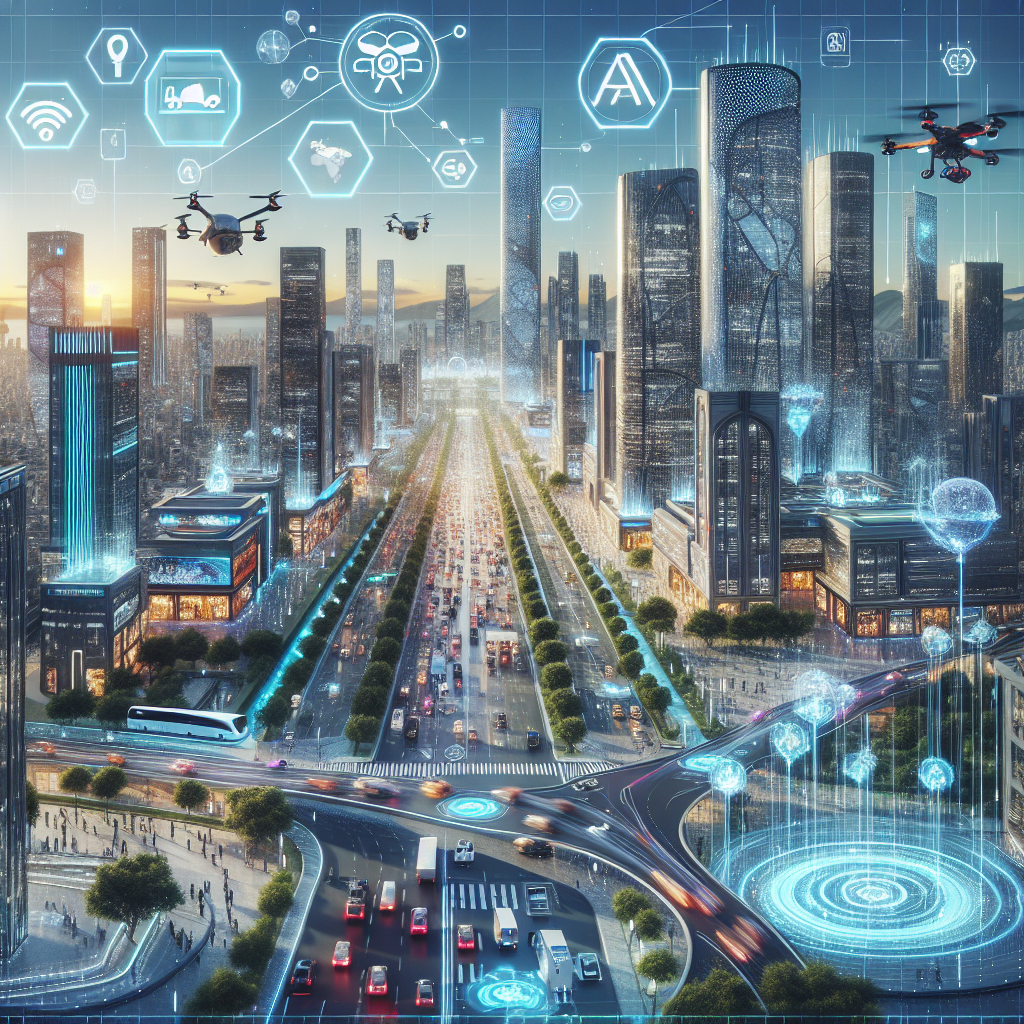The Future of AI Software in Smart Cities
As technology continues to advance at an unprecedented rate, the concept of smart cities is becoming more of a reality than ever before. Smart cities are urban areas that utilize various forms of technology to improve the quality of life for its residents, enhance the efficiency of city services, and promote sustainable practices. One of the key technologies driving the development of smart cities is artificial intelligence (AI) software.
AI software is a type of computer program that can perform tasks that typically require human intelligence, such as learning, problem-solving, and decision-making. In the context of smart cities, AI software can be used to analyze vast amounts of data collected from sensors, devices, and infrastructure to optimize city operations, improve public services, and enhance the overall urban experience.
There are several ways in which AI software is being integrated into smart city initiatives, and the potential benefits are vast. Here are some of the key areas where AI software is expected to play a significant role in shaping the future of smart cities:
1. Traffic Management: One of the biggest challenges in urban areas is traffic congestion. AI software can be used to analyze real-time traffic data, predict congestion patterns, and optimize traffic flow by adjusting traffic signals and rerouting vehicles. This can help reduce commute times, lower fuel consumption, and improve air quality.
2. Energy Management: AI software can be used to monitor and analyze energy consumption in buildings, streetlights, and other infrastructure to identify ways to reduce energy waste and increase efficiency. This can help cities lower their carbon footprint and save on energy costs.
3. Public Safety: AI software can be used to analyze video feeds from surveillance cameras, sensors, and social media to detect potential security threats and respond in real-time. This can help law enforcement agencies proactively address crime and emergencies, making cities safer for residents and visitors.
4. Waste Management: AI software can be used to optimize waste collection routes, predict waste generation patterns, and identify opportunities for recycling and composting. This can help cities reduce landfill waste, lower costs, and promote sustainability.
5. Smart Buildings: AI software can be integrated into building management systems to optimize energy usage, monitor equipment performance, and enhance occupant comfort. This can lead to improved building efficiency, reduced maintenance costs, and a better overall indoor environment.
6. Healthcare: AI software can be used to analyze healthcare data, predict disease outbreaks, and optimize healthcare resource allocation. This can help cities respond more effectively to public health crises and provide better healthcare services to residents.
7. Citizen Engagement: AI software can be used to create personalized services for residents, such as customized transportation routes, event recommendations, and public service alerts. This can help cities improve communication with residents and tailor services to their specific needs.
Despite the many potential benefits of AI software in smart cities, there are also challenges and concerns that need to be addressed. One of the main concerns is privacy and data security. As cities collect vast amounts of data from sensors and devices, there is a risk that this data could be misused or compromised. It is important for cities to implement robust data protection measures and ensure that residents’ privacy rights are respected.
Another challenge is the potential for AI bias. AI software is only as good as the data it is trained on, and if this data is biased or incomplete, the AI system may produce inaccurate or unfair results. It is crucial for cities to address bias in AI algorithms and ensure that they are transparent and accountable in their decision-making processes.
In conclusion, the future of AI software in smart cities is promising, with the potential to revolutionize urban living and make cities more efficient, sustainable, and livable. By harnessing the power of AI technology, cities can address key challenges, improve public services, and enhance the overall urban experience for residents and visitors.
FAQs:
Q: How will AI software impact job opportunities in smart cities?
A: While AI software may automate certain tasks and roles, it also has the potential to create new job opportunities in areas such as data analysis, programming, and AI system management. Cities will need skilled workers to develop, implement, and maintain AI systems, which can lead to job growth in the technology sector.
Q: What are some examples of successful AI implementations in smart cities?
A: Some examples of successful AI implementations in smart cities include Barcelona, which uses AI software to optimize public transportation routes, and Singapore, which uses AI to monitor and manage traffic congestion. These cities have seen improvements in efficiency, sustainability, and quality of life as a result of their AI initiatives.
Q: How can residents provide feedback on AI software in smart cities?
A: Cities can engage residents through surveys, focus groups, and public meetings to gather feedback on AI software implementations. It is important for cities to involve residents in the decision-making process and address any concerns or issues that may arise.
Q: What are some potential ethical considerations when using AI software in smart cities?
A: Ethical considerations when using AI software in smart cities include ensuring transparency in decision-making processes, addressing bias in AI algorithms, protecting privacy rights, and promoting accountability in AI systems. Cities must prioritize ethical considerations to build trust with residents and ensure the responsible use of AI technology.

